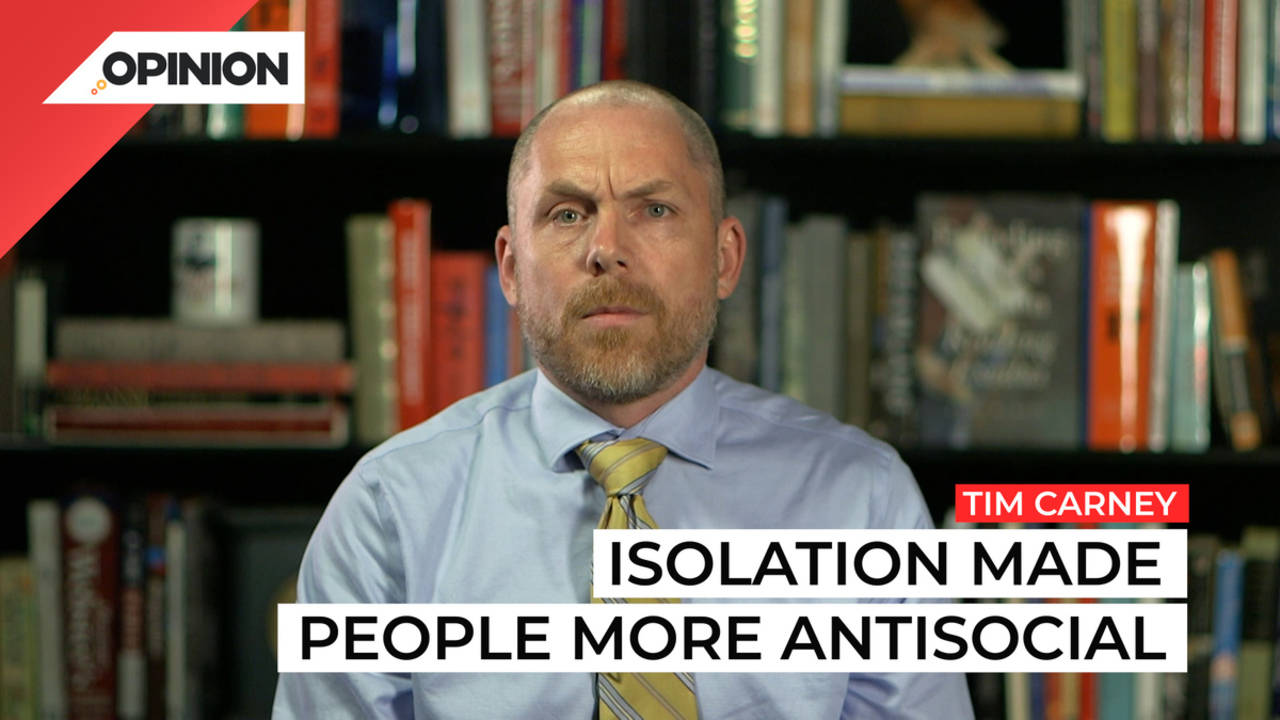
Commentary
-
Our commentary partners will help you reach your own conclusions on complex topics.
Before gun control was the official cause of the day before Ukraine flags were everywhere before the vaccine became a source of identity and before the mask was religious garb. The cause celebre in the media and online was a lockdowns stay home save lives blared a million front yard signs Facebook profile pics and Twitter names.
The idea was that if we kept the schools closed, canceled all summer camps, close the playgrounds, locked up the basketball courts, called off the Little League season. Busted kids who got together for social gatherings closed all community gathering, places shamed folks who walked up and down the boardwalk band concerts, shuttered churches and generally discouraged all human interaction outside the household, the virus would go away.
The virus didn’t go away.
Whether the lockdowns or stay at home orders saved many lives is up for debate. But the force isolation and heightened alienation definitely cost lives. Specifically, children died because of lockdowns in 2020. The number of drug and alcohol deaths for Americans under age 18 was double the average from the 2000 10s and 2021. Childhood drug and alcohol deaths stayed at that high level. This is sadly not surprising. depression and anxiety rates among teenagers have hit record levels in the last two years.
And is it any wonder that kids found life more daunting that when deprived of friends, sports classmates and activities, and forced to spend even more hours a day staring at a screen, kids found life more disheartening.
Murderers also spiked across the country in 2020 and 2021. Why? Isolation made people more antisocial. Those who have mental health issues are coming from broken homes became untethered when they lost community interactions. The supermarket shooter in Buffalo was radicalized online. During the lockdowns the Uvalde Texas school shooter never really returned to school after the 2020 closures According to reports, this was predictable. The Department of Homeland Security warned in late 2020 That social isolation is one of the quote, risk factors that may make an individual more susceptible to radicalizing to violence. A lack of connection leads to quote, fear of others.
Homeland Security warned in a memo, children may have been more affected than anyone else. But everyone was harmed by the policy decisions that isolated individuals from neighbors, friends, counselors and pastors. Opioid overdose deaths went up nearly 50% in Washington, DC and Virginia in 2020. Even cigarette sales increase in 2020 by nearly a billion the first increase in 20 years.
Then there are the other health costs. almost 22 million children around the world missed their measles vaccine in 2020, the highest number since 2008. Obesity is on the rise as more and more children are sedentary.
So when we talk about the cost of the pandemic, we need to be clear, the virus itself was incredibly harmful killing millions worldwide and leaving many children without a parent. But the government responses to the virus also caused harm.
People need other people, people need to belong to things. When you take away that sort of connection and belonging. Bad things happen and people die.
-
How Biden’s tax on Chinese metal harms Americans
President Joe Biden announced plans to triple tariffs on Chinese steel and aluminum to protect American jobs from “unfair” competition. The White House said China is hurting the U.S. economy by selling steel at very low prices. Watch the video above as Straight Arrow News contributor Timothy Carney argues that while Biden’s new tariffs might…
-
Democrats use climate change issues to help sell liberal agenda
According to a January survey, only 12% of Republicans say dealing with climate change should be a top priority for the president and Congress, ranking the issue last among the 20 included in the survey. By contrast, 59% of Democrats say climate change should be a top priority for the president and Congress. While Democrats may…
-
HHS Secretary Becerra’s crusade against Catholicism
When President Joe Biden took office, he nominated Xavier Becerra, a former California congressman and attorney general, to run the U.S. Department of Health and Human Services (HHS). As California’s attorney general, Becerra was at the forefront of legal efforts on health care. In his current position as HHS secretary, Becerra is a strong proponent…
-
Universities must blame themselves for protest hypocrisy
U.S. college protests over the Israel-Hamas war have divided college campuses, often pitting university officials and executives against their own students and faculty. And yet, as Straight Arrow News contributor Timothy Carney points out, many of today’s university officials are actually the anti-Vietnam War protesters of a previous era’s student protest movement. Today, those same…
-
Subsidizing demand won’t fix real problems
The Biden administration recently announced an initiative to cap child care copay expenses for approximately 100,000 low-income working families in the United States. Instead of paying set fees, those families will pay 7% of whatever their total income is as a copay for the government-subsidized daycare program. The program also hopes to fully cover all…
Latest Opinions
-
 U.S. Department of Defense
U.S. Department of Defense
Congress still trying to figure out how to reduce wasteful military spending
-
 DVIDS
DVIDS
US Navy, Air Force making waves with new weapons at RIMPAC
-
 Getty Images
Getty Images
Israeli PM Netanyahu meets with Trump at Mar-a-Lago
-
 Getty Images
Getty Images
Growing US nuclear power resurgence reaches the nation’s heartland
-
 Getty Images
Getty Images
Beer from the sun, other solar thermal projects get government funding
Popular Opinions
-
In addition to the facts, we believe it’s vital to hear perspectives from all sides of the political spectrum.


